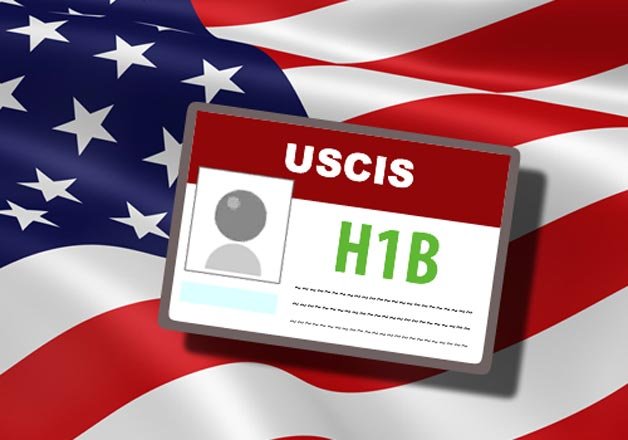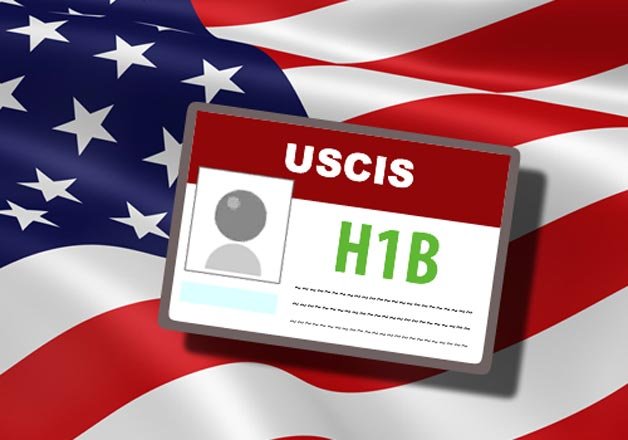New legislation to tighten H1B visas to foreign techies
Fri 20 Jan 2017, 11:05:35
Two powerful US Senators have announced they will introduce a legislation which, if passed by the Congress, would give preference to foreigners studying in American universities, a move that will tighten the noose around the H-1B visa programme and could hurt Indian IT firms.The bill - to be introduced by Senator Chuck Grassley and Dick Durban - will require US Citizenship and Immigration Services to prioritise for the first time annual allocation of H-1B visas. It will ensure the "best and brightest" students being educated in the US receive preference for an H-1B visa, a statement issued by the Senators said.
The preference system also gives a leg up to advanced degree holders, those being paid a high wage, and those with valuable skills, it said. "Congress created these programmes to complement America's high-skilled workforce, not replace it. Unfortunately, some companies are trying to exploit the programmes by cutting American workers for cheaper labour," Grassley said.
"We need programmes dedicated to putting American workers first. When skilled foreign workers are needed to meet the demands of our labour market, we must also ensure that visa applicants who honed their skills at American colleges and universities are a priority over the importation of more foreign workers," he said. "Our bill takes these steps to ensure that the programmes work for Americans and skilled foreign workers alike," said Grassley, chairman of the Senate Judiciary Committee.
The legislation restores Congress' original intent in the H-1B and L-1 visa programmes by increasing enforcement, modifying wage requirements and securing protections for both American workers and visa holders. "Reforming the H-1B and L-1 visa programmes is a critical component of fixing our broken immigration system and must be included in comprehensive immigration reform legislation," Durbin said.
"For years, foreign outsourcing companies have used loopholes in the laws to displace qualified American workers and facilitate the outsourcing
of American jobs. The H-1B and L-1 Visa Reform Act would end these abuses and protect American and foreign workers from exploitation. I thank Senator Grassley for partnering with me on this important bipartisan legislation," he said.
of American jobs. The H-1B and L-1 Visa Reform Act would end these abuses and protect American and foreign workers from exploitation. I thank Senator Grassley for partnering with me on this important bipartisan legislation," he said.
The bill among other things would crack down on outsourcing companies that import large numbers of H-1B and L-1 workers for temporary training purposes only to send the workers back to their home countries to do the same job. Specifically, it would prohibit companies with more than 50 employees, of which at least half are H-1B or L-1 holders, from hiring additional H-1B employees, the statement said.
The proposed legislation gives the Department of Labour enhanced authority to review, investigate, and audit employer compliance with programme requirements, as well as to penalise fraudulent or abusive conduct. It requires the production of extensive statistical data about the H-1B and L-1 programs, including wage data, worker education levels, place of employment and gender.
According to the Senators, the bill clarifies that working conditions of similarly employed American workers may not be adversely affected by the hiring of the H-1B worker, including H-1B workers who have been placed by another employer at the American worker's worksite. In addition, it explicitly prohibits the replacement of American workers by H-1B or L-1 visa holders. These provisions address the types of abuses that have been well-documented in recent press reports.
In addition, the bill includes several reforms of the L-1 visa programme. These include establishment of a wage floor for L-1 workers; authority for the Department of Homeland Security to investigate, audit and enforce compliance with L-1 programme requirements; assurance that intra-company transfers occur between legitimate branches of a company and don't involve "shell" facilities; and a change to the definition of "specialised knowledge" to ensure that L-1 visas are reserved only for truly key personnel.
No Comments For This Post, Be first to write a Comment.
Most viewed from International
Most viewed from World
AIMIM News
Latest Urdu News
Most Viewed
May 26, 2020
Do you think Canada-India relations will improve under New PM Mark Carney?
Latest Videos View All
Like Us
Home
About Us
Advertise With Us
All Polls
Epaper Archives
Privacy Policy
Contact Us
Download Etemaad App
© 2025 Etemaad Daily News, All Rights Reserved.





.jpg)






.jpg)
.jpg)








.jpg)
.jpg)
.jpg)
.jpg)
.jpg)

















